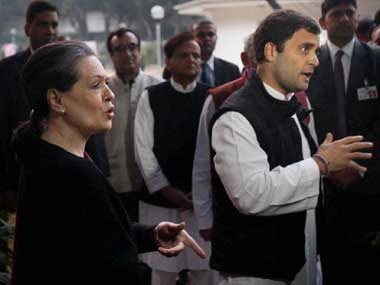Jyotiraditya Scindia took responsibility for the Congress debacle in Madhya Pradesh but defended party vice-president Rahul Gandhi’s campaign efforts and vociferously denied the Congress did not empower leaders at the state level. Scindia emphasised that any party needed a combination of strong central and state leadership to succeed in an election and that it was weak state leadership that cost the party in the four elections in Rajasthan, Madhya Pradesh, Delhi and Chhattisgarh. “So the first neck on the line must be mine,” he told CNN-IBN. He also admitted that he was frightened by the situation in MP, where Shivraj Singh Chouhan’s government was elected for a third term with a two-third’s majority. “I don’t want to take the comparison of any othe state, but it should worry any person with a conscience in the Congress party. Fifteen years out of power is not a position any party wants to be in,” he said. These elections were seen as a barometer for the national elections to be held next year and also a as some sort of referendum on Narendra Modi and Rahul Gandhi, the faces of the BJP and Congress respectively. [caption id=“attachment_1276429” align=“alignleft” width=“380”]  Sonia and Rahul Gandhi explain their party’s loss. PTI[/caption] The thrashing of the Congress has therefore left Rahul Gandhi looking like a weak and ineffectual campaigner, but Scindia would not be drawn into denouncing Rahul. Instead, he argued that Rahul should be given credit for saying that the Aam Aadmi Party in Delhi had taught the Congress a lesson in how to reach out to the people. “Give credit to Rahul Gandhi for coming out and saying that. If someone has done something good in their structure, to replicate that is not a bad thing.” He also pointed out that even though Rahul’s methods had failed in the four most recent assembly elections, they had worked in Karnataka, Himachal Pradesh and Uttarkhand. Confronted with claims that Congress party had a high-command culture that did not allow for the growth of strong state leaders, Scindia argued that Congress could not have won elections in a number of states without strong state leaders. While he accepted that the state leaders could not name their own candidates – all options had to be vetted by the Congress central leadership – he claimed this was a fairer system where everyone’s voice had a chance to be heard. “You don’t have a one-way street,” he said. For all of Scindia’s statements though, analysts laid the blame for Congress’ losses squarely on the crown-prince’s shoulders. Sociologist Dipankar Gupta felt the Congress needed Sonia Gandhi to step in and take over the campaign and cautioned the BJP as well, saying they should not fall in to the trap of personality politics by promoting Narendra Modi above the party. “The BJP keep saying the next time the people will vote for Modi. They are not saying next time they will vote for BJP. These elections have demonstrated local leaders matter. Modi cannot hoist the likes of Amit Shah on the people,” he said. Swapan Dasgupta, a right-leaning senior journalist, said that Modi had energised the party cadres but had the biggest impact where there were existing robust local structures in place. “Where the local structure is not so robust, he has not had such an impact. It cannot be a one man show.” While Dasgupta argued that there was need for systemic change in the Congress party, the strongest criticism of Rahul came from historian Ramachandra Guha. “[Rahul] doesn’t have the political acumen or intelligence and he does not have the political drive and stamina. This boy is a well-meaning loser. The sooner he is kicked out of the Congress party, the better for the party,” Guha said.
Neither Modi nor Rahul Gandhi can rely on personality cults to carry their parties through in the next election.
Advertisement
End of Article


)
)
)
)
)
)
)
)
)



